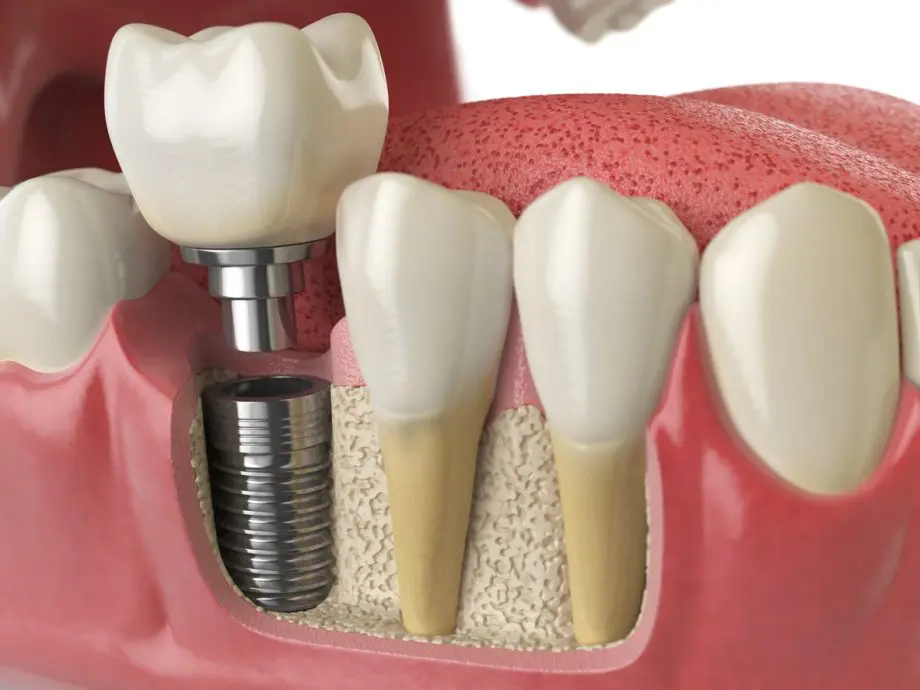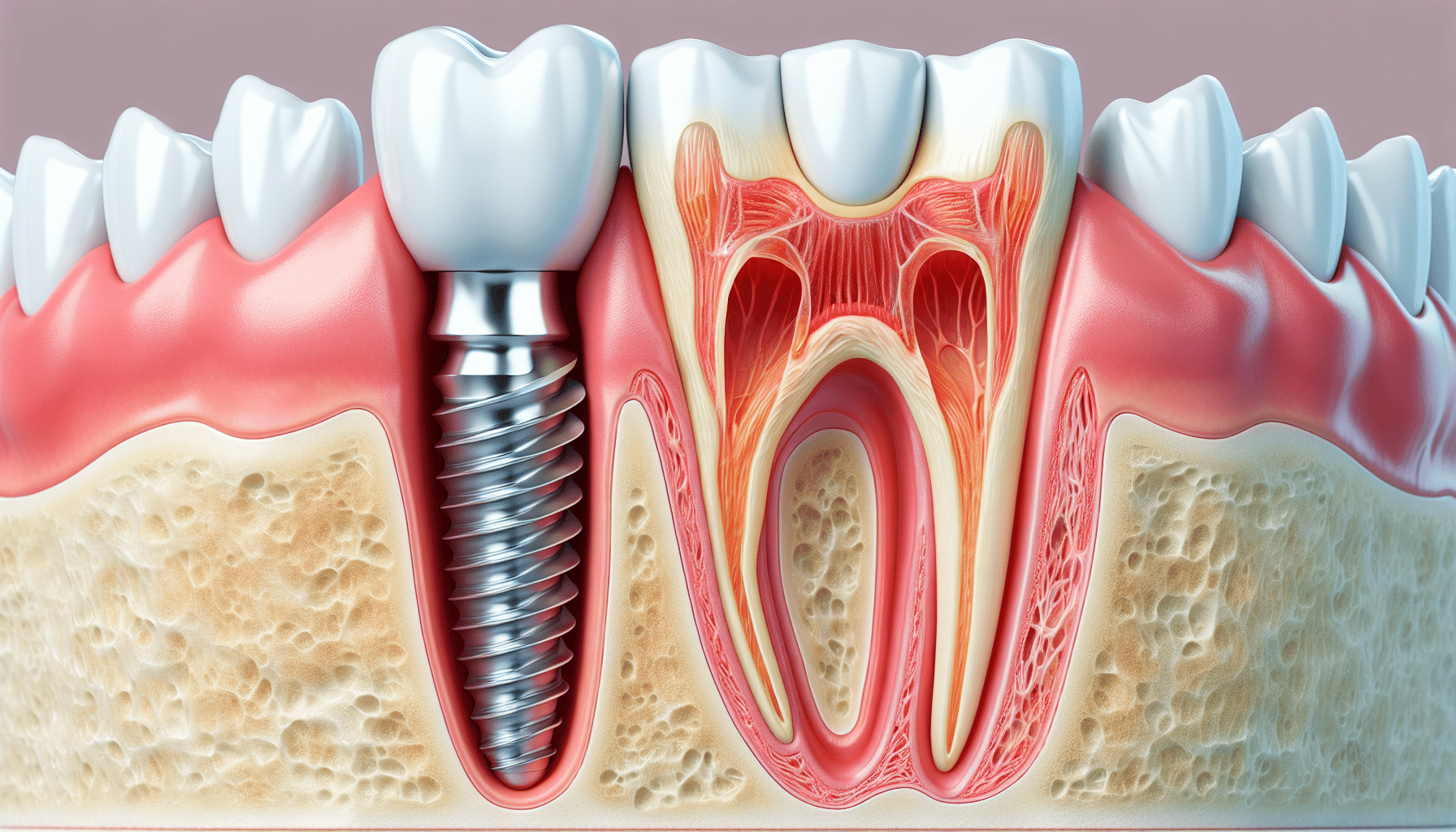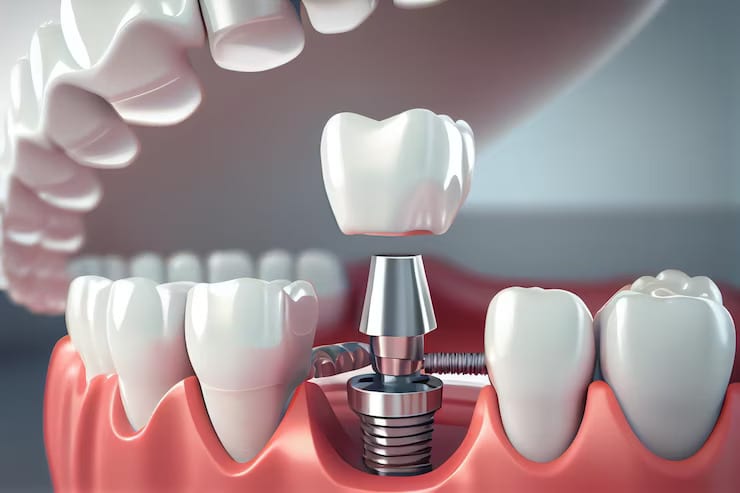Dental Clinic Alexandria OH Permanent Dental Implants
Dental Clinic Alexandria OH Permanent Dental Implants
Blog Article
Dentists Condit OH Dental Implant Types: Choosing the Right Solution
Dental implants have emerged as a popular alternative for individuals looking for a long-term solution to tooth loss. One important facet of understanding dental implants involves their impact on adjacent teeth. This is especially essential for making certain the health and longevity of the complete dental structure.
When a dental implant is placed, it mimics the function of a natural tooth root. By doing so, it helps maintain the integrity of the surrounding bone structure. Natural teeth rely on a balanced, interconnected system for help, and dental implants can contribute positively to that dynamic. The stability provided by the implant permits for better distribution of chunk forces, which may prevent undue stress on adjacent teeth.
Dental Clinic Centerburg OH Permanent Dental Implants
In circumstances where a tooth is missing, the neighboring teeth might shift into the vacant house. This shifting can lead to misalignment and numerous different complications. By placing a dental implant, the risk of this shifting is decreased, as the implant acts as a placeholder that preserves the natural alignment of surrounding teeth. This preventive impact is essential for long-term oral health and function.
Another essential consideration is bone loss. When a tooth is misplaced, the jawbone in the area can begin to deteriorate as a result of a lack of stimulation. Dental implants help prevent this bone loss by providing the required stimulation to the jawbone, much like a natural tooth root would. This preservation of bone not only supports the implant itself but in addition contributes to the steadiness of adjacent teeth.
The kind of material used in dental implants, typically titanium, has a unique property of osseointegration, meaning it fuses with the bone over time. This integration provides a sturdy basis for the synthetic tooth whereas making certain that the implant doesn’t negatively affect surrounding constructions. As the implant integrates, it creates an setting that contributes positively to the health of the adjacent teeth.

Regular dental check-ups play an essential position in monitoring the impression of dental implants on adjacent teeth. Professional assessments can help determine any points that may arise, making certain immediate treatment and maintaining the health of the entire dental arch. These evaluations may embody X-rays to check for bone density and the overall condition of the implant and surrounding teeth.
Premier Dental Granville OH Dental Implants Cost Breakdown: What You Need to Know
Oral hygiene practices are important for people with dental implants. Proper brushing and flossing habits not solely contribute to the longevity of the implant but in addition ensure that adjacent teeth remain healthy. Food particles and plaque that accumulate around the implant could cause problems, together with peri-implantitis, an inflammatory condition that may have an result on surrounding teeth and tissues.
The positioning of dental implants can affect the health of adjacent teeth. If an implant is placed at an angle or not correctly aligned, it might result in elevated strain on neighboring teeth. This misalignment could trigger put on and tear on adjacent enamel, probably leading to cavities or different dental points. Therefore, the talent and experience of the dentist performing the implant process are paramount in attaining a successful consequence.
In some cases, additional procedures may be necessary to arrange the encircling space for an implant. Bone grafting or sinus lifts might help create a better setting for the implant. While these procedures are aimed toward enhancing the site for the implant, in addition they serve to guard the health of adjacent teeth by creating a more steady basis.
Dentists Galena OH The Advantages, Risks, and Insurance for Dental Implants

As dental know-how evolves, advancements in implant strategies result in better outcomes. Improved imaging strategies and computer-aided design permit for extra exact placements that minimize risk to adjacent teeth. With these developments, the likelihood of issues that would come up from improperly placed implants diminishes considerably.
Post-operative care also performs a crucial role in guaranteeing that adjacent teeth remain unaffected. Patients should adhere to the dentist's instructions concerning food regimen, oral hygiene, and follow-up visits. Neglecting these pointers might result in complications that impact not solely the implant but in addition the neighboring teeth.
Johnstown Dental Alexandria OH Dental Implant Types: Choosing the Right Solution
In conclusion, dental implants, when positioned accurately and cared for correctly, have the potential to boost the health of adjacent teeth rather than detract from it. They maintain alignment, stimulate bone development, and provide a safe basis that supports the entire dental structure. Understanding how dental implants affect adjacent teeth emphasizes their importance as a long-term tooth replacement solution. With continuous advancements in technology and strategies, the integration of dental implants into restorative dentistry is becoming increasingly successful, guaranteeing wholesome and practical smiles for years to come back.

- Dental implants prevent adjacent teeth from shifting into the hole created by a missing tooth, helping to maintain up correct alignment in the mouth.
- The rebuilding of the jawbone through an implant can stimulate surrounding teeth and maintain them wholesome by offering necessary bone density which may in any other case diminish.
- Adjacent teeth profit from the stabilization that dental implants present, reducing the risk of put on and tear and tear from misalignment throughout chewing.
- Implants can defend adjacent teeth by performing as a framework, which can distribute bite forces evenly across the dental arch as an alternative of inserting undue stress on neighboring teeth.
- When positioned correctly, dental implants minimize the risk of gum disease which may have an result on adjacent teeth by sustaining a clear and wholesome gum line.
- The presence of an implant can facilitate an improved oral hygiene routine, as it eliminates the need for bridgework that would lure meals particles around adjacent teeth.
- Regular dental check-ups can reveal how properly the implant integrates with surrounding buildings, making certain ongoing health for adjacent teeth.
- Implants can prevent the natural strategy of bone resorption that happens after tooth loss, positively impacting the soundness and longevity of adjacent teeth.
- The use of dental implants would possibly cut back the need for extra invasive procedures in the future, providing a long-term solution that maintains the structure of the entire dental arch.
- Successful integration of an implant into the dental arch enhances overall oral function, often resulting in improved confidence and oral health for adjacent teeth.undefinedHow do dental implants affect adjacent teeth?
What impact do dental implants have on the alignment check of adjacent teeth?
Dental implants typically prevent the shifting of adjacent teeth, serving to to hold up correct alignment. This stability can cut back the danger of creating chunk points over time.
Can dental implants trigger injury to nearby teeth?
When placed correctly by a qualified skilled, dental implants mustn't injury adjacent teeth - Johnstown Dental Condit OH. However, improper placement or inadequate planning could result in complications
Dentists Pataskala OH The Best Dental Implant Services
Do dental this page implants require any particular care concerning adjacent teeth?
Maintaining good oral hygiene is crucial. Surrounding teeth ought to be brushed and flossed regularly, and routine dental check-ups will help ensure that each the implants and adjacent teeth remain wholesome.

Will dental implants impression the health of my surrounding teeth?
Dental implants can improve the health of surrounding teeth by distributing chunk forces evenly, reducing put on and tear. Additionally, they'll prevent bone loss in the jaw, which might have an effect on adjacent teeth.
Mono Dental Implants Galena OH Understanding Dental Implants: A Comprehensive Guide
Are there any long-term results of dental implants on nearby teeth?
Long-term, dental implants may help preserve the health of adjacent teeth by stopping shifting and potential gum points, finally contributing to better oral health overall. - Dentist Alexandria OH
Can gum problems arise round adjacent teeth after getting implants?
If correct dental care is uncared for, gum points might develop round each the implants and adjacent teeth. Following post-operative care instructions is important to reduce these risks.
Johnstown Dental Condit OH Dental Implants: Options, Costs, and Care
How do dental implants examine to visit here bridges by means of adjacent teeth?
Dental implants are typically useful as they don’t require alteration of adjacent teeth, unlike bridges, which necessitate reshaping of close by teeth for assist. (Johnstown Dental Sunbury OH)
Can I nonetheless get cavities in adjacent teeth if I have dental implants?
Yes, adjacent teeth can still develop cavities if not properly cared for. Dental implants themselves cannot get cavities, but they require vigilant hygiene practices to protect surrounding natural teeth.
What is the success rate of dental implants in relation to surrounding teeth?
The success rate of dental implants is high, but it largely is dependent upon the quality of the process and ongoing care. Well-maintained implants usually result in higher outcomes for adjacent teeth as nicely.